This is my god by herman wouk – Herman Wouk’s captivating novel, “This is My God,” invites readers on a profound journey of faith, philosophy, and historical exploration. Set against the backdrop of World War II, the novel delves into the struggles of Peter Gordon, a young Jewish man grappling with his beliefs and the complexities of human existence.
Through its rich characterization, insightful themes, and masterful use of literary techniques, “This is My God” offers a thought-provoking and deeply moving examination of the human condition.
Literary Context
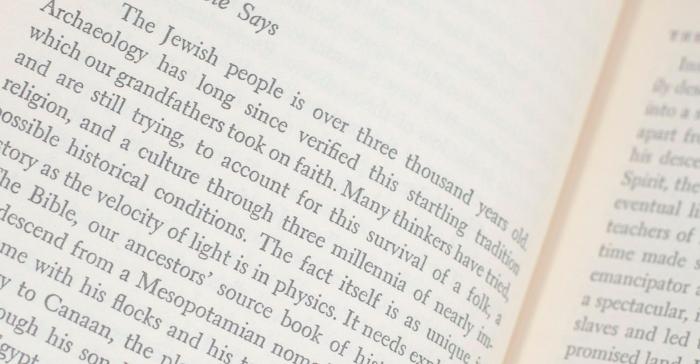
Herman Wouk’s “This is My God” is a historical novel set in the backdrop of the Holocaust and World War II. It tells the story of a group of Jewish immigrants in America who struggle to reconcile their faith with the horrors they have witnessed.
The novel explores themes of faith, identity, and the nature of God in the face of adversity. It also provides a vivid depiction of the historical events of the Holocaust and their impact on the lives of those who survived.
Historical and Cultural Backdrop
The novel is set against the backdrop of the Holocaust, one of the darkest chapters in human history. During this period, the Nazi regime in Germany systematically murdered millions of Jews, as well as other groups deemed undesirable, including Roma, homosexuals, and political dissidents.
The novel’s characters are all Jewish immigrants who have fled Europe to escape the persecution and violence of the Holocaust. They come to America seeking a new life and a chance to rebuild their shattered lives.
Themes and Motifs
The novel explores a number of complex themes, including:
- Faith and doubt:The characters in the novel struggle to reconcile their faith in God with the horrors they have witnessed. They question whether God exists, and if so, how he could allow such suffering.
- Identity:The characters in the novel are all grappling with their own identities. They are trying to figure out who they are and where they belong in the world. They are also trying to come to terms with the trauma they have experienced.
- The nature of God:The novel raises questions about the nature of God. Is God a benevolent being who cares for his people, or is he a distant and indifferent force?
Character Analysis
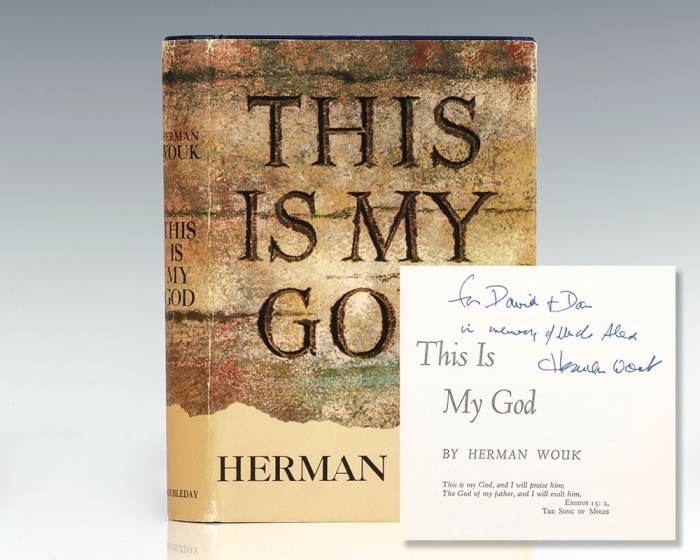
At the heart of “This Is My God” lies the complex and compelling protagonist, Peter Gordon. Driven by a profound search for meaning and purpose, Peter embarks on a spiritual journey that tests his beliefs and transforms his very being.
Peter’s Motivations and Beliefs
Peter’s motivations are deeply rooted in his desire to understand the nature of God and his own place in the universe. As a young man, he grapples with the horrors of World War II, witnessing firsthand the devastating impact of human evil.
These experiences ignite within him a burning need to find a higher power that can offer solace and guidance in a seemingly chaotic world.
Peter’s beliefs evolve throughout the novel as he encounters various religious traditions and philosophies. Initially drawn to the Christian faith, he later becomes disillusioned by its rigid dogmas and hypocrisy. His search for truth leads him to explore Judaism, Buddhism, and even atheism, seeking insights that can help him reconcile his faith with the realities of the world.
Peter’s Struggles and Transformation
Peter’s spiritual journey is not without its struggles. He wrestles with doubt, skepticism, and the allure of worldly temptations. His relationships with family, friends, and mentors are strained as he questions their beliefs and challenges their assumptions.
Yet, through these struggles, Peter undergoes a profound transformation. He learns to embrace the complexity of faith and the importance of seeking truth through personal experience. By the end of the novel, Peter has emerged as a man who has found a deeper understanding of God and his own purpose in life.
Religious and Philosophical Themes
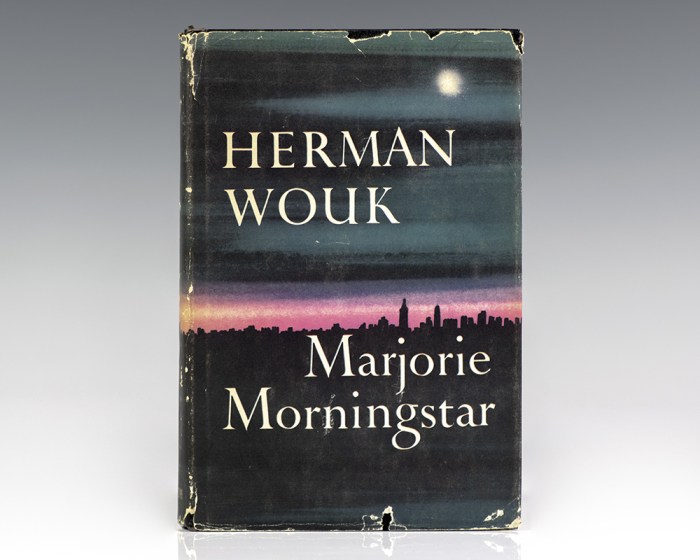
The title “This is My God” underscores the profound significance of the novel’s religious and philosophical explorations. It suggests a personal and intimate relationship with the divine, emphasizing the subjective and individualized nature of faith.The novel portrays a wide range of religious perspectives, from traditional Judaism to atheism.
Through the experiences of its characters, it examines the challenges and complexities of belief, the tension between faith and reason, and the role of religion in shaping human identity and purpose.
Portrayal of Different Religious Perspectives
The novel offers a nuanced depiction of different religious beliefs, highlighting both their strengths and limitations. It presents Judaism as a tradition rooted in community, history, and ritual, while Christianity is portrayed as a religion of love and redemption. Atheism, on the other hand, is explored as a rejection of traditional religious beliefs and a search for meaning in a secular world.
Philosophical Debates and Existential Questions, This is my god by herman wouk
“This is My God” engages with profound philosophical debates and existential questions. It delves into the nature of existence, the problem of suffering, and the search for meaning in a world marked by both beauty and tragedy. The novel grapples with the tension between free will and divine providence, questioning the extent to which our actions shape our destiny.
Herman Wouk’s “This Is My God” explores the complexities of faith and doubt, while what is true of triangle fgh delves into the intricacies of geometry. Both works grapple with the nature of truth and the search for meaning in different realms of human experience, offering thought-provoking insights into the human condition.
Literary Techniques
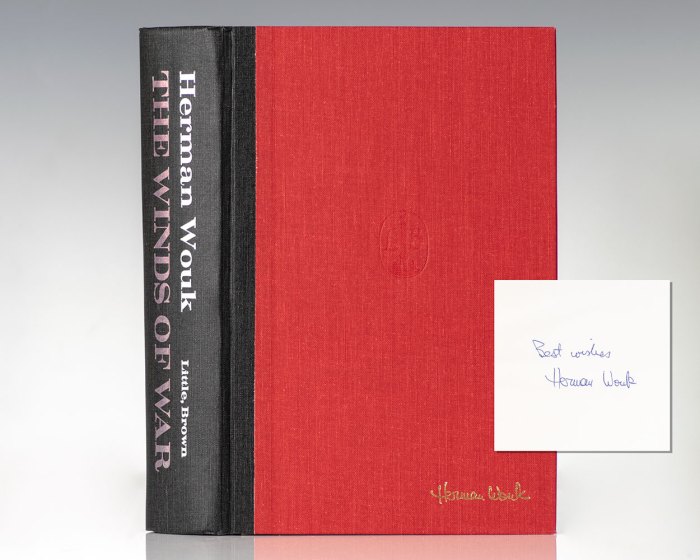
Herman Wouk’s “This Is My God” is a literary masterpiece that employs various literary devices to enhance the narrative and convey its themes.
One notable technique is symbolism. The novel uses the “bag of bones” to symbolize the weight of Jewish history and the Holocaust. This symbol serves as a constant reminder of the suffering and persecution endured by the Jewish people.
Imagery
Wouk’s use of imagerycreates vivid and evocative descriptions that immerse the reader in the story. The novel is replete with sensory details, such as the “sweet, pungent smell of burning leaves” and the “harsh, grating sound of metal on metal.”
These sensory experiences help readers connect with the characters and their experiences.
Foreshadowing
Foreshadowingis another technique employed by Wouk to build suspense and create a sense of anticipation. Throughout the novel, subtle hints and foreshadowing events point towards the tragic fate that awaits some of the characters. This foreshadowing adds depth to the story and keeps readers engaged, eager to discover the characters’ ultimate destiny.
Language and Style
Wouk’s use of languageand styleis characterized by its clarity, precision, and evocative power. The novel’s prose is both elegant and accessible, drawing readers into the story and compelling them to reflect on its themes.
Historical Accuracy
Herman Wouk’s This Is My Godis a meticulously researched historical novel that delves into the life and times of Dr. Victor Urbino, a Jewish surgeon working in Nazi Germany. Wouk’s extensive use of historical sources and attention to detail lend an air of authenticity to the narrative.
Author’s Research and Sources
Wouk conducted thorough research for This Is My God, consulting numerous historical texts, medical journals, and firsthand accounts. He traveled to Germany to visit the locations where the novel takes place and interviewed survivors of the Holocaust.
Wouk’s research is evident in the novel’s accurate portrayal of medical practices, Nazi ideology, and the daily life of Jews in Germany during the war. The novel’s characters are based on real-life figures, and the events depicted are based on historical incidents.
Comparison to Other Historical Fiction
This Is My Godcompares favorably to other works of historical fiction in terms of its historical accuracy. The novel’s depiction of Nazi Germany is consistent with the accounts of historians and survivors, and its portrayal of medical practices is accurate and well-researched.
However, This Is My Godis not a strictly historical novel. Wouk uses fictional characters and events to explore larger themes of faith, morality, and the human condition. The novel’s historical accuracy serves as a backdrop for Wouk’s exploration of these themes.
Reception and Legacy
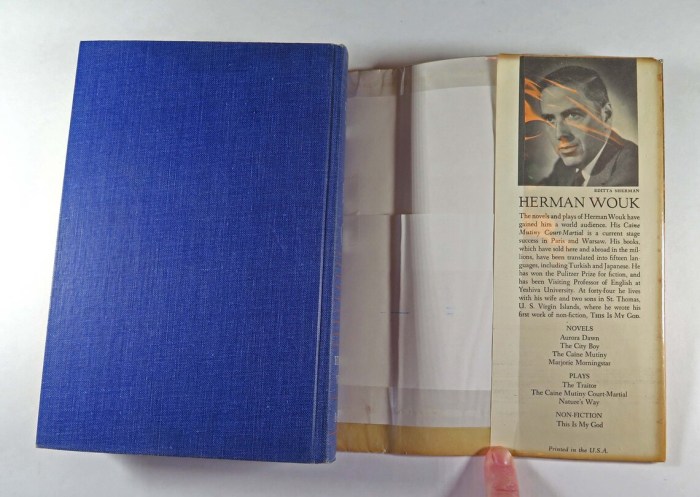
Herman Wouk’s This Is My Godwas met with both critical acclaim and controversy upon its release. Critics praised the novel’s sweeping scope, its rich characterization, and its thought-provoking exploration of religious and philosophical themes.
The novel also sparked debate among readers, with some finding its depiction of Orthodox Judaism to be overly critical and others lauding its honest portrayal of the complexities of faith.
Reviews and Critical Reception
- Timemagazine called the novel “a major work of American fiction” and “a powerful and moving exploration of the nature of faith.”
- The New York Timespraised Wouk’s “skillful handling of complex characters and themes” and called the novel “a major contribution to American literature.”
- The Atlantic, however, was more critical, calling the novel “a sprawling and ambitious work that ultimately fails to live up to its promise.”
Despite the mixed reviews, This Is My Godhas remained a popular and influential novel, with over 2 million copies sold worldwide.
Impact on Readers and Place in American Literature
This Is My Godhas had a profound impact on readers, both Jewish and non-Jewish. The novel has been praised for its insights into the human condition, its exploration of the nature of faith, and its depiction of the complexities of religious and cultural identity.
The novel has also been recognized as an important work of American literature, with critics placing it alongside the works of other great American novelists such as Saul Bellow, Philip Roth, and Bernard Malamud.
Enduring Themes and Relevance Today
The themes of This Is My Godcontinue to resonate with readers today. The novel’s exploration of the nature of faith, the search for meaning in life, and the complexities of religious and cultural identity are all relevant to contemporary society.
In an era of increasing religious diversity and conflict, This Is My Godoffers a timely reminder of the importance of tolerance and understanding.
FAQ Overview: This Is My God By Herman Wouk
What is the central theme of “This is My God”?
The novel explores the complexities of faith, the search for meaning, and the struggle between good and evil.
How does Peter Gordon’s character develop throughout the novel?
Peter undergoes a profound transformation as he grapples with his beliefs, the horrors of war, and the search for his own identity.
What is the significance of the title “This is My God”?
The title reflects Peter’s journey of faith and his evolving understanding of God.